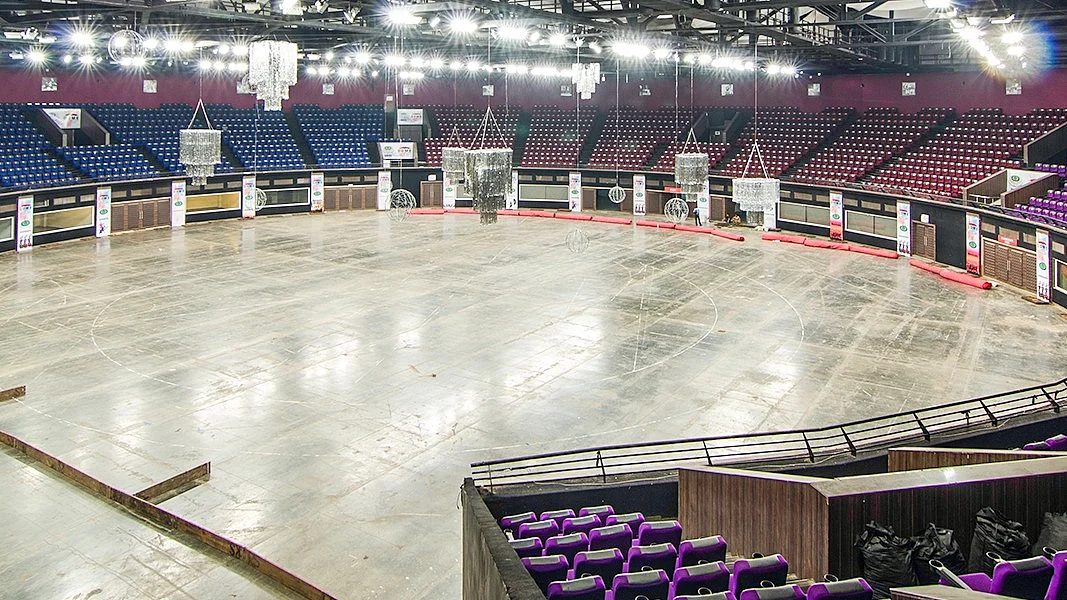The appointment of Pushkar Singh Dhami as the chief minister of Uttarakhand is the symptom of a disease which had infected the BJP long ago but whose pain the party is feeling now. No disrespect to Dhami but he is the same person who was earlier not even considered competent enough to be inducted as cabinet minister or minister of state in the BJP’s previous governments. He was elected twice as an MLA and was an officer on special duty to the erstwhile chief minister of Uttarakhand, Bhagat Singh Koshyari, who now is the Governor of Maharashtra. Top BJP leaders in the state are stunned to see a rank junior leader suddenly capturing the top post in the state.
He is young but could he turn the table in favour of the BJP and win the state for the BJP in the 2022 assembly elections? The BJP, by all indications, is on a weak wicket and party will be lucky if it forms the government again. Dhami is the third chief minister in the state in the last four months. Earlier, Trivendra Singh Rawat was most ‘mysteriously’ removed and Tirath Singh Rawat, again most ‘mysteriously’ was handed over the reins of the state by the BJP leadership.
Dhami's predecessor
Till then nobody had heard of his name outside the state. And his name was not even discussed in the media nor in party circles as a probable candidate to replace Trivendra Singh. Tirath Singh has of course, been the BJP state president and a committed RSS worker who always preferred to lie low, but he was not the kind of a leader who could be trusted to run a state. Soon after his appointment, all the apprehensions about him proved to be true. And in a few weeks, it became obvious that under his leadership, the BJP was headed for disaster.
He created more headlines with his absurd statements than his acts. He allowed lakhs of people to take the holy dip during the Maha Kumbh, in utter disregard of the raging pandemic. The chief minister was heard saying that the Ganga waters were blessed and anyone who took a dip in them would not be infected by corona. The Uttarakhand high court was livid at the conduct of his government. Thanks to him, a holy event like the Kumbh came to be a super spreader. No corona protocol was observed, and whatever little was done after the high court’s scathing observation brought more disgrace to the BJP government. A big scam was unearthed in the name of corona testing.
Poor homework
Now, the excuse is being offered to the people is that he had to be removed because he couldn't be elected as an MLA in a by-election. As per the People’s Representation Act, a by-election can’t be conducted for a vacant seat when less than a year is left for the term of the assembly to end. This raises the very serious question of why he was chosen as a chief minister in the first place, when it was not possible for him to become the member of the assembly within six months of his swearing-in, as mandated by the law. That means not enough homework was done while choosing him.
It is no secret that since 2014, Modi and Shah have been at the helm of the BJP. They take all the decisions - big and small. So, if anyone is to be blamed for this faux pas, it's them. In the last seven years, a pattern has emerged. Decisions are taken without any deep analysis and homework. Wider consultation is avoided and diverse opinions are not welcome. As a result, half-baked decisions are made and the country has to suffer.
Momentous decisions
Demonetisation, GST implementation, the announcement of a national lockdown and the vaccine policy during the second wave of Covid are decisions that will haunt this government and the country for long. The sudden announcement of demonetisation and the thoughtless implementation of the GST ruined the Indian economy much before Covid hit the country. Thousands of businesses collapsed, and millions of people were left unemployed.
The sudden declaration of a lockdown provoked the biggest human migration since Partition, with untold miseries. And Covid mismanagement and policy paralysis on the issue of vaccination by the Modi government will go down in history as a classic case of how not to manage a human crisis. All four crises could have easily been avoided; human suffering, particularly during Covid could have been largely mitigated and lacs of lives could have been saved had the government had been more receptive to suggestions and believed in wider consultations and involved more people in decision-making.
No consensus-building
Unlike his mentors Lal Krishna Advani and Atal Bihari Vajpayee, Modi does not believe in consensus-building; he has no faith in collective leadership. Since Independence, India has not witnessed this kind of centralisation of power. Nehru and Indira Gandhi were equally or more popular than Modi, the government and the party was dependent on them, but decision-making was never so skewed.
Nehru was a democrat. He believed in consultation and valued suggestions given by his colleagues and senior party members. After the liquidation of the syndicate in the Congress, Indira Gandhi acquired dictatorial tendencies, dwarfed party men/women, but she should be credited with having assembled a vast number of brilliant advisers and learned experts and she not only respected them but also used to listen to them.
Unfortunately, Modi, in the party and the government, is surrounded by people who, by no stretch of the imagination could be termed as any match to Indira Gandhi’s advisers. Rather, the reverse is the truth. There is a long list of brilliant people who had left the government or were forced to leave. Arvind Subramanian, Arvind Panagariya, Raghuram Rajan and Urjit Patel, to mention a few. Amongst Modi’s colleagues, Nitin Gadkari has been totally sidelined. World-renowned institutions like Howard University were publicly ridiculed. Only Amit Shah is trusted amongst partymen. Shah too, is not like Advani, who formed a brilliant partnership with Atal Bihari Vajpayee. Theirs was a relationship of equals. Shah is much junior to Modi, owes his meteoric rise in national politics to Modi. He derives his power from Modi. Atal-Advani differed with each other on many issues but Shah can’t afford to differ with Modi. He is a loyal soldier who blindly follows his leader.
To Atal-Advani's credit
Atal-Advani should also be credited with having created a pool of very talented leaders in the BJP. In every state they let regional leaders grow. Kalyan Singh, Rajnath Singh, Uma Bharti, Shivraj Singh Chouhan, Sunder Lal Patwa, Kushabhau Thackeray, Bhairon Singh Shekhawat, Vasundhara Raje Scindia, Keshubhai Patel, Shankarsinh Waghela, Shanta Kumar, Prem Dhumal, Sushil Modi, Pramod Mahajan, Gopinath Munde, Raman Singh, B S Yediyurappa, Anant Kumar, Sushma Swaraj, Arun Jaitley, Manohar Parrikar, Nitin Gadkari and Narendra Modi were all trained, nurtured and promoted by the two. Today, unknown leaders without any social base are made chief ministers and are not allowed to take independent decisions. Himanta Biswa Sarma and Devendra Fadnavis are exceptions. (Yogi is not their choice.) But the number of such leaders is negligible.
Within the organisation, faceless people whose names are difficult to remember are occupying powerful positions. Most of them are party bureaucrats, not leaders. They owe their existence to the high command. It could be called Indira Gandhi 2.0. The Congress today is in tatters because of Indira Gandhi; she promoted sycophants, darbaris and leaders without any base; powerful regional leaders were destabilised and uprooted. As a result, the party, which had a galaxy of leaders with independent thinking in the states, shrank rapidly during Indira’s time and the party almost collapsed after her demise. Today, the BJP is going through the same process, otherwise there is no reason to promote leaders like Tirath Singh and Pushkar Dhami to top posts. Will history repeat itself? Only time will tell.
The writer is an author and Editor, satyahindi.com










